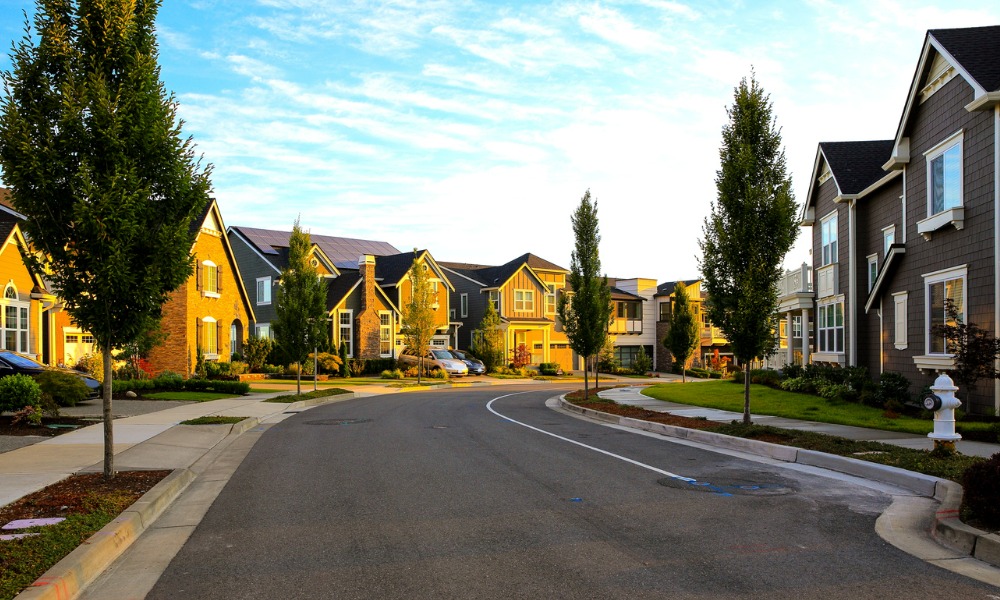Plus: How affordability impacts real estate

The short answer: Yes, there is likely to be a correction in the housing market. But let’s not call it a crash. For the difference between a correction and a crash—and to figure out if it is beneficial for you—read on.
What is a ‘housing market correction’?
A housing market correction is when property prices fall 10% below their peak market value. Typically, a corrective decrease in home prices comes after slowing home sales and increased inventory on the market.
Is a price correction in real estate expected?
The short answer: Yes. A price correction in real estate in the US is expected. It should be noted, however, that that housing correction is also expected to fall short of a housing crash. After the Federal Reserve introduced its largest increase in interest rates in years to fight rising inflation, with further increases likely, home prices are expected to drop especially in housing markets that were overinflated. Those markets, particularly in the mountain west or in the southwest, which have seen dramatic speculation, will see the price pendulum swing significantly back the other way.
Boise, Idaho—which has recently been dubbed the most overvalued market in the US—in particular is due for a housing price correction. Other US cities and states that are likely to see a correction include northeast Florida, the Carolinas, and Phoenix and Tucson, Arizona.
The predicted correction is not expected to bring much relief for renters, however. Potential homebuyers will still have limited options to go from leases to loans due in part to rising interest rates and the supply of starter homes for buyers being limited. Rent growth is, however, being tempered thanks to construction for multi-family housing and rising permits.
A housing price correction—rather than a housing crash—is expected for a few reasons. The first is that housing vacancy rates remain at an historic low (as opposed to the historic highs prior to the financial crisis in 2008). Secondly, mortgage underwriting remains high, in terms of quality. The majority of loans are 15- or 30-year fixed-rate products. In other words, there are no signs of negative amortization or subprime activity that was so rampant prior to the foreclosure crisis. Finally, speculation and flipping across the US also remains low.
Is a housing crash good or bad?
Typically, a housing crash is good for homebuyers and bad for sellers. In our current financial situation, however, where a housing correction rather than a housing crash is predicted, there are some interesting factors at play. One is that current market conditions are making it more likely that millennials are coming closer to becoming first-time homebuyers, with a combined share of younger and older millennial buyers rising to 43%, according to a report by NAR. That number is up from 37% from the previous year.
Another beneficial factor is white-collar workers moving from first-tier to second-tier American cities, spurring ongoing demand for housing in urban and suburban areas experiencing fast population growth. Finally, price-to-rent ratios in cities like Boise and Phoenix, while also concerning, could further motivate homebuyers.
How does the affordability of a home affect the housing market?
After home sellers in the US benefitted from property prices rising nearly 40% throughout the coronavirus pandemic, economists are now predicting average prices will either stall or drop due to housing correction. Across the US, home prices are expected to decrease by roughly 5% after increased mortgage rates and home prices spurred an affordability crunch. In August, economists at Goldman Sachs forecast that property prices will stall completely, with 0% growth in 2023.
This activity will likely provide potential homebuyers better opportunities to enter the housing market, though higher mortgage rates continue to add to the cost of buying a house. Low incomes compared to high borrowing costs and property prices is also keeping homebuyers out. Thanks to high mortgage rates and prices, buyers are paying up to $600 more per month than they were this time last year, forcing demand to drop.
But affordability may not be the only issue to impact the housing market. The coronavirus pandemic was a large reason that the demand for housing shot up. During the lockdown, in other words, many Americans sought more space, while others were working remotely and therefore relocated to more affordable centers such as Boise, Idaho, or San Francisco, California. Now that the lockdown is lifting, these trends appear to be fading. Centers that experienced disproportionate increases in building permits and home sales between 2020 and 2021 are now experiencing equally disproportionate declines.



